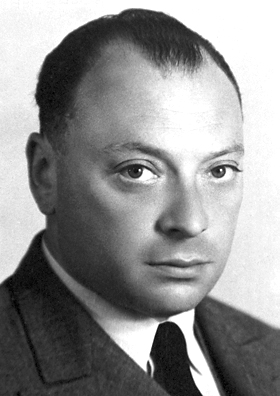
noun
- Wolf·gang [woo lf-gang; German vawlf-gahng] /ˈwʊlf gæŋ; German ˈvɔlf gɑŋ/, 1900–58, Austrian physicist in the U.S.: Nobel prize 1945.
noun
- Wolfgang (ˈvɒlfˌɡæŋ). 1900–58, US physicist, born in Austria. He formulated the exclusion principle (1924) and postulated the existence of the neutrino (1931), later confirmed by Fermi: Nobel prize for physics 1945
- Austrian-born American physicist who in 1924 formulated a principle stating that no two fermions, such as two electrons in an atom, can have identical energy, mass, and angular momentum at the same time. This principle is known as the Pauli Exclusion Principle. He also hypothesized the existence of the neutrino in 1931, which was confirmed in 1956.
 Liberal Dictionary English Dictionary
Liberal Dictionary English Dictionary